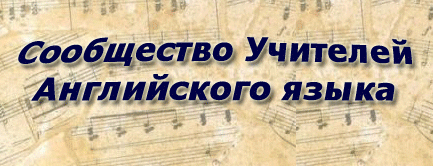British Royal Family
The British Royal Family
is the group of close relatives of the monarch of the United
Kingdom. The term is also commonly applied to the same group of people as
the relations of the monarch in her or his role as sovereign of any of the other Commonwealth
realms, thus sometimes at variance with official national terms for the
family.[1]
Members of the royal family belong to, either by birth or marriage, the House
of Windsor, since 1917, when George V changed the name of the
royal house from Saxe-Coburg and Gotha. This decision was
primarily taken because Britain and her Empire were at war with Germany and
given the British Royal Family's strong German ancestry, it was felt that its
public image could be improved by choosing a more British house name. The new
name chosen, Windsor, had absolutely no connection other than as the name of the
castle which was and continues to be a royal residence.
Although in the United Kingdom
there is no strict legal or formal definition of who is or is not a member of
the Royal Family,[2]
and different lists will include different people, those carrying the style Her or His Majesty
(HM), or Her or His Royal Highness (HRH) are always
considered members, which usually results in the application of the term to the
monarch, the consort of the monarch, the widowed
consorts of previous monarchs, the children of the monarch and previous
monarchs, the male-line grandchildren of the monarch and previous monarchs, and
the spouses and the widows of a monarch's and previous monarch's sons and
male-line grandsons.
Members and relatives of the
British Royal Family historically represented the monarch in various places
throughout the British Empire, sometimes for extended periods as viceroys, or for
specific ceremonies or events. Today, they often perform ceremonial and social
duties throughout the United Kingdom and abroad on behalf of the UK, but, aside
from the monarch, have no constitutional role in the affairs of government.
This is the same for the other realms of the Commonwealth though the family
there acts on behalf of, is funded by, and represents the sovereign of that
particular state, and not the United Kingdom.[citation needed]
Notes
- After his abdication in 1936, Edward VIII became HRH
The Duke of Windsor.
- HRH The Duchess of Cornwall is also
legally The Princess of Wales but refrains from
using that style out of deference to the late Diana, Princess of Wales.
Public
role and image
Members of the Royal Family participate
in hundreds of public engagements yearly throughout the whole of the United
Kingdom, as formally recorded in the Court
Circular, to honour, encourage and learn about the achievements or
endeavours of individuals, institutions and enterprises in a variety of areas
of life. As representatives of HM The Queen, they often also join the nation in
commemorating historical events, holidays, celebratory and tragic occurrences, and
may also sponsor or participate in numerous charitable, cultural and social
activities. Their travels abroad on behalf of the UK (called State
Visits when the sovereign officially meets with other heads of state) draw
celebrity-like attention to amicable relations within and between the
Commonwealth and other nations, to British goods and trade, and to Britain as a
historical, vacation, and tourist destination. Their presence, activities and
traditional roles constitute the apex of a modern "royal court,"
and provide a distinctly British and historical pageantry
to ceremonies (e.g. Trooping the Colour) and flavour to public
events (e.g. Garden Parties, Ascot).
Throughout their lives they draw enormous media coverage in the form of
photographic, written and televised commentary on their activities, family
relationships, rites of passage, personalities, attire,
behaviour, and public roles. Senior members of the royal family often drive
themselves instead of having a driver.[5]
In a lengthy interview conducted by
PBS prior to the death of Diana, Princess of Wales in August 1997,[6]
Max
Hastings, editor of the Daily
Telegraph between 1986 and 1995, discussed the impact of Andrew Morton's and Jonathan
Dimbleby's biographies of, respectively, Diana, Princess of Wales and HRH The Prince of Wales on subsequent news
coverage of the Royal Family in the UK.
| 
